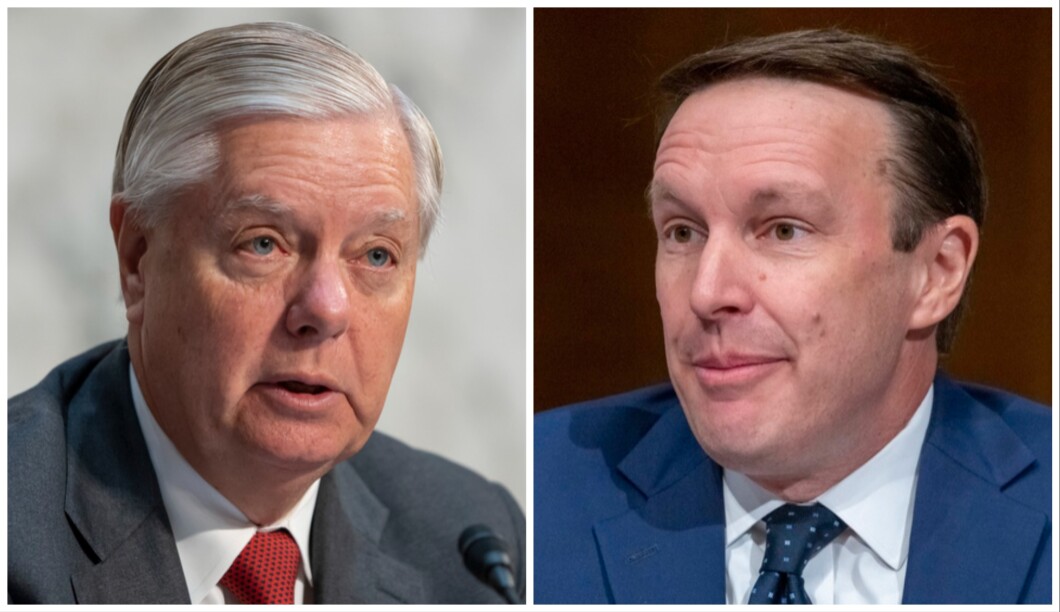
Senators are at an impasse in their negotiations on a bipartisan border security deal to be included in President Joe Biden’s supplemental defense spending bill.
The bipartisan group acknowledged the difficult reality to reporters on Thursday, with multiple members saying that negotiators were “stuck.” The comments were not entirely surprising, as negotiators had been cautioning for two days that progress was not being made.
WISCONSIN EX-RACE CAR DRIVER COULD PLAY SPOILER TO GOP’S PLANS TO OUST TAMMY BALDWIN
“It’s stuck. Bad,” Sen. Lindsey Graham (R-SC), one of the members involved in the talks, told reporters on Thursday afternoon.
Asked if that meant the effort was dead, he replied: “I don’t know about dead. Nothing’s dead until it’s dead. I’m not asking for H.R. 2, but I do want parole to be changed.”
“In the bigger sense, we are stuck because Republicans have decided to condition Israel and Ukraine aid on a domestic issue we haven’t been able to solve,” Sen. Chris Murphy (D-CT), the lead negotiator on the Democrat side, said. “In that sense, we are stuck, but we just finished up an hour of talks and are making plans to talk tomorrow.”

Republicans have cautioned since Biden sent Congress the $106 billion request that Ukraine aid has no path to passage in the House without a substantial set of border policy changes.
As a result, a bipartisan coalition of senators has been working on a possible border agreement for weeks. The talks have centered on possible changes to federal asylum policy and how the Biden administration uses the humanitarian parole authority.
Senate Majority Leader Chuck Schumer (D-NY) and Minority Leader Mitch McConnell (R-KY) have fully supported the effort to combine Israel and Ukraine aid. The two have backed the inclusion of border security, though they differ on some of the policy change specifics. Taiwan assistance was also included to help broaden support for the bill.
If they can reach an agreement, that legislation is expected to pass the Senate with bipartisan support but could face a tough path forward in the House without a major set of border policy changes. Even if Republicans were to secure concessions from Democrats in the current Senate negotiations, the legislation would face considerable opposition from House GOP lawmakers who oppose Ukraine aid.
Were Schumer to concede to House Speaker Mike Johnson (R-LA) and separate out the bills, individual legislation could have difficulty passing on their own in the Senate. Democrats control the chamber 51-49 and would need full party support and nine Republicans to pass legislation altering border policy.
The Senate would be forced to take each of the bills up separately if the House tanked the upper chamber’s supplemental legislation, something one Republican said would be tricky to accomplish.
CLICK HERE TO READ MORE FROM THE WASHINGTON EXAMINER
The Republican, a member of leadership speaking on condition of anonymity, said the Senate does not have a clear path to pass the supplemental in pieces. The Ukraine funding would lack GOP votes, but the border funding would cause at least a few Democratic defections.
Packaged together, the measure could have enough votes to cross the finish line in both chambers, though the timing would be far from ideal. The chamber will spend December working on the supplemental deal, finishing its appropriations process, and confirming hundreds of stalled military nominations.





